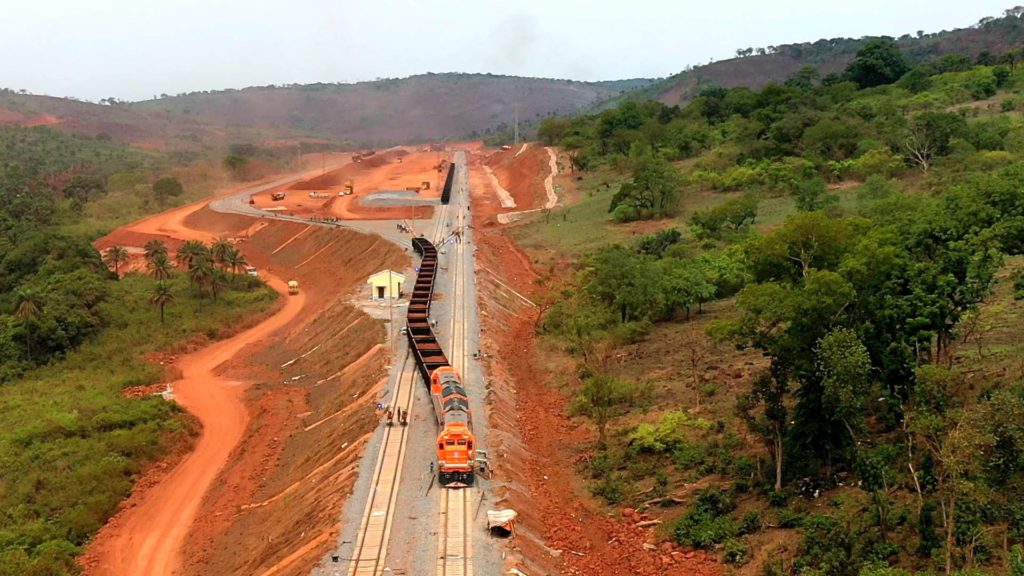China’s top bauxite supplier set to boost output as rail starts

Guinea, which has the world’s largest proven reserves of bauxite, is poised to expand production after the nation’s top miner of the ore completed a $1 billion railway linking new blocks to an export terminal.
Societe Miniere de Boke’s rail project will carry bauxite from its Santou II and Houda blocks to the Port of Dapilon. The West African nation granted the company a concession allowing it to build and operate the 135-kilometer (84-mile) railway for 33 years before returning it to the state, Mining Minister Abdoulaye Magassouba told reporters at an inauguration ceremony Wednesday.
Most of the new production may go to China, which last year was the biggest buyer of bauxite — the raw material used to make alumina and eventually aluminum– from Guinea. Aluminum prices remain near multiyear highs in London as a global recovery from the pandemic boosts demand while output curbs in China have underpinned the outlook for tight supply.
That’s good news for the nation’s finances. The African Development Bank forecasts Guinea’s current account deficit and budget gap to shrink in 2022.
Guinea shipped 82.4 million tons of the mineral globally last year, according to government data.
The $1 billion railway investment includes the purchase of 24 locomotives and 1,440 wagons, Magassouba said, and the project could be used by other miners located between the Santou mining zone and the Port of Dapilon.
“With the commissioning of the Santou-Dapilon railway, the consortium will establish a bauxite chain with more stable production capacity, more ecological operation and more sustainable development,” said Sun Xiushun, who heads the SMB-Winning Consortium, which owns SMB.
SMB, which accounted for 40% of Guinea’s bauxite exports in 2020, is a joint venture between Singapore’s Winning Shipping Ltd., logistics group UMS International, China’s Shandong Weiqiao, and the Yantai Port group. The Guinean government also holds a 10% stake.
The rail project is part of the consortium’s $3 billion bauxite investment in the country, which includes an alumina refinery and the development of mining licenses.
(By Ougna Camara)
{{ commodity.name }}
{{ post.title }}
{{ post.date }}




Comments